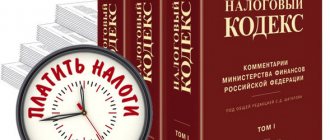Vehicles for which tax relief can be issued
The issue of providing benefits for the payment of transport tax is regulated by the Tax Code of the Russian Federation. For this purpose, certain categories of citizens are allocated subsidies from the federal and regional budgets.
Federal benefits are available to owners of the following types of vehicles:
- rowing boats;
- passenger cars equipped for disabled people;
- vessels used for fishing;
- ships transporting goods and people by sea and river (usually their owners are private or small state-owned companies that engage in transportation);
- agricultural machinery;
- transport that is used for operational, military or similar work;
- air transport belonging to medical and sanitary institutions.
Results
Transport tax benefits are divided into federal (they are listed in the Tax Code of the Russian Federation) and regional (they are established in regional laws).
You must declare your right to a benefit to the Federal Tax Service (submit an application in the form recommended by the tax authorities), and also submit supporting documents or provide the tax authorities with their details.
Sources:
- Tax Code of the Russian Federation
- Law of the Russian Federation of May 15, 1991 No. 1244-1
- Federal Law of January 10, 2002 No. 2-FZ
- Order of the Federal Tax Service of Russia dated July 25, 2019 No. ММВ-7-21/ [email protected]
- Order of the Federal Tax Service of Russia dated November 14, 2017 No. ММВ-7-21/ [email protected]
You can find more complete information on the topic in ConsultantPlus. Free trial access to the system for 2 days.
Categories of persons entitled to benefits
List of persons who are granted transport tax benefits in 2021 at the federal level:
- participants in hostilities during the Second World War;
- heroes of the USSR and Russia;
- persons awarded Orders of Glory 1-3 degrees;
- disabled people and WWII veterans;
- disabled people and military pensioners who took part in hostilities in other periods (including participants in hostilities in Chechnya);
- legal guardians, trustees, adoptive parents or one of the natural parents of a disabled child;
- disabled people of group 2;
- owners of vehicles with an engine capacity of up to 70 liters. With.;
- one of the adoptive parents or parents in a large family;
- people who transport a disabled person in his car;
- liquidators of the consequences of man-made accidents - at the Chernobyl nuclear power plant, Mayak PA, as well as those exposed to radiation during testing of military, space equipment, and nuclear weapons.
Transport tax benefits for pensioners are not valid throughout Russia. In some regions, the subsidy has been significantly reduced, and in others it has been completely eliminated.
Video: Who has benefits when paying transport tax?
Regional benefits
The maximum tax amount and the composition of payers are set by the State Duma, and regional authorities have the right to introduce additional benefits and determine subsidy rates locally. Therefore, in two neighboring regions, the amount of fees may differ significantly.
Preferences that apply to a certain category of car owners in one part of the country do not necessarily apply in another.
You can find out about benefits on the tax office website in the “Electronic Services” section . To obtain information, you need to select the name of the tax, the region of interest and the tax period.
In response to the request, the service will provide information about the law, which contains information about benefits.
What vehicles are subject to tax?
Owners of motorized vehicles are required to pay this type of tax. All proceeds from it remain in the budget of the subject of the Federation and are used to eliminate the damage caused to nature and road surfaces by motor vehicles.
This fee applies to the following types of vehicles:
- Cars – both trucks and cars.
- Buses.
- Motor vehicles – motorcycles, ATVs, scooters, snowmobiles.
- Water transport, including motor boats, yachts, cutters, jet skis.
- Aviation transport equipped with an engine.
Expert opinion
Maria Mirnaya
Insurance expert
OSAGO calculator
The tax rate that determines the amount of accrual is established in each region individually . This takes into account factors such as the type of vehicle, its purpose and installed engine power. In addition, for cars costing over 3 million rubles , an increasing factor is applied. It was introduced in 2021 after the adoption of the luxury tax law, and in different cases ranges from 1.1 to 3 base rates for a given type of car.
Who is completely exempt from transport tax?
Some citizens are not charged transport tax at all . According to Art. 358 of the Tax Code of the Russian Federation, these include owners of the following vehicles:
- low-power (up to 5 hp) and rowing boats;
- passenger cars converted for the needs of disabled people;
- machines with a power of no more than 100 hp. pp. received from social services;
- fishing vessels;
- drilling rigs, floating and fixed platforms;
- passenger ships owned by individual entrepreneurs (tax is not levied on an individual entrepreneur if passenger transportation is his main activity);
- ships that are registered in international registries;
- combines, tractors, special equipment used in agriculture;
- aircraft and helicopters of sanitary and medical services;
- cars that are reported stolen.
Also, transport tax, as a rule, is not levied on veterans' organizations that own a car used only for work purposes.
Disabled people using vehicles with a capacity of up to 100 horsepower
are completely exempt from paying it With. , single parent in a large family, liquidators of the Chernobyl accident, spouses of military personnel who died in service, heroes of the USSR and socialist labor.
Tax amounts
The most popular vehicle owned by citizens is a passenger car, and the tax rate directly depends on the engine power and ranges from 10 to 150 rubles per “horse”. In second place in popularity are motorcycles, scooters and scooters, and owners pay from 9 to 50 rubles per unit of power. Pay tax in the amount of 25-50 rubles. for 1 hp You will also have to pay for the snowmobile.
Transport owned by legal entities deserves special attention, namely, enterprises and organizations most often own trucks and buses. The age of the vehicle deserves special attention here - the rate for a bus less than 5 years old is, depending on the power, 27-56 rubles, despite the fact that the maintenance of “old” buses is much more expensive. The minimum tax value for old equipment is 50 rubles per 1 “horse”, and the maximum amount is limited to 100 rubles. The same applies to trucks - the older the vehicle, the more you have to pay for it. If you have to pay 20-58 rubles for a truck under 5 years old, then for an older car it’s already 25-85 rubles.
Benefits for disabled people
The federal law establishes transport tax benefits for disabled people of group 2 . This is done to facilitate the movement of such persons.
You can take advantage of the preferences if two conditions are met: the car was purchased with funds from the guardianship authority, and its owner has a disabled person’s certificate.
Organizations and associations of disabled people who use transport for their work enjoy special benefits. They also apply to persons who became disabled after participating in the liquidation of the Chernobyl accident.
Benefits also apply to disabled people of group 1, but disabled people of group 3 cannot take advantage of them . This category of citizens needs social protection, since due to illness people are limited in a certain area of life activity.
Nevertheless, a person can take care of himself independently, albeit with the help of auxiliary means, and is legally capable. Therefore, there are no grounds for assigning benefits.
Dear reader!
The article provides basic information, but most cases are individual in nature. In this connection, our website employs on-duty lawyers whom you can contact by phone:
- Moscow ext 152
- St. Petersburg ext 152
- All regions ext 132 (Toll free)
When you contact us, you will receive advice specifically on your problem.
- Heroes of the Russian Federation or the USSR;
- WWII participants;
- Disabled people of groups 1 or 2;
- Disabled people since childhood;
- Large families.
Group 3 disabled people receive a 50% tax discount.
It should be taken into account that owners of cars with a power of 150 hp or more. you will have to pay tax on the number of “horses” exceeding the established value.
Tax rates in the region
Rates in the Moscow region for car owners are not the same as in Moscow:
| Power (hp) | Cost 1 hp |
| Up to 100 | 10 |
| 100-150 | 34 |
| 150-200 | 49 |
| 200-250 | 75 |
| From 250 | 150 |
Example:
The veteran lives in the Moscow region, owns a passenger car with a capacity of 270 hp. The tax for it is calculated from the full amount:
120 x 150 = 40,500 rub.
Tax rates may change - they are set by the authorities of the constituent entities of the Russian Federation.
For large families
Federal law provides transport tax benefits for large families . The decision on their provision is made by the authorities of a particular region.
The status of a large family is assigned to a family with more than three children under 18 years of age (or 23 years of age if they are full-time students).
Only one parent can apply for social support.
He can independently choose a vehicle that is eligible for benefits.
This can be a passenger car with a power of up to 150 hp. s., motorcycle, scooter.
If a parent with many children is raising 3 or more children alone, he is usually completely exempt from paying transport tax.
What are the collected funds spent on?
According to the Tax Code of the Russian Federation, funds collected from vehicle owners are sent to the regional budget, therefore the amount of taxes is set at the local level. As for the state, it can only limit the limit of tax payments. Until January 1, 2003, taxes and funds from car owners went exclusively to maintaining the condition of roads, and they were accumulated in special road funds. Today, thanks to the tax, the regional budget is replenished, and the funds are spent at the discretion of the region’s leaders:
- for highway repairs;
- salaries for representatives of the public sector;
- for the construction and maintenance of socially significant facilities;
- for other needs of the region.
According to the current tax legislation, the circle of persons forced to pay transport tax has been established (Article 357 of the Tax Code), the procedure for calculating tax on enterprises and organizations is considered (Article 362 of the Tax Code), and Article 361 discusses the procedure and terms of payment. The law provides for the exemption of transport tax (Article 44 of the Tax Code), as well as the provision of benefits to certain categories of Russians.
For combat veterans
Transport tax benefits for combat veterans have certain restrictions.
So, in Moscow there is a complete exemption from paying it, but only for one vehicle.
In most cases, only old cars manufactured before 1991 and whose power does not exceed 200 hp are eligible for social support. With.
Benefits for military service veterans also apply to low-power swimming equipment.
Their widows can also benefit from subsidies if they have not remarried.
For Chernobyl survivors
Now in most regions of Russia, Chernobyl victims do not have to pay transport tax.
This category of persons includes not only liquidators of the consequences of the accident and people whose health was seriously damaged due to their stay in the contaminated area. The law also includes persons who worked in the exclusion zone after the liquidation of the accident.
Not all Chernobyl victims receive such tax preferences . In Belgorod, Ryazan and some other regions there are no concessions for them. In Karelia, Chernobyl victims must pay 50% of the vehicle tax.
To apply for a benefit, a person must provide the tax office with a passport and a document confirming the purpose of the benefit. It is provided only on one basis chosen by a person.
You can submit documents within 3 years from the date of acquiring the right to the benefit. The entire amount of the overpayment can be used to pay off future payments or returned upon written request.
Registration of benefits: procedure
Tax benefits are provided in a notification mode. Until the owner of the vehicle himself contacts the tax authorities, no preferences are assigned to him.
statements
The application is written in the prescribed form, in compliance with certain rules:
- Provide accurate and up-to-date information.
- When filling out handwriting, black ink should be used.
- All information must be written in legible handwriting, preferably in block letters.
- The form should not contain corrections or erasures.
Along with the application, a set of documentation is submitted to the Federal Tax Service confirming the right to receive benefits. You can submit an appeal in the following ways:
- Personally visiting the territorial department of the Federal Tax Service.
- Through the local branch of the MFC.
- According to the official website of the Federal Tax Service.
- Through the portal "State Services".
- With an official representative who has a notarized power of attorney.
After receiving a set of documents, Tax Administration employees check it for completeness and accuracy of the specified information. If no errors are identified, then from the next month the applicant will be granted a transport tax benefit.








